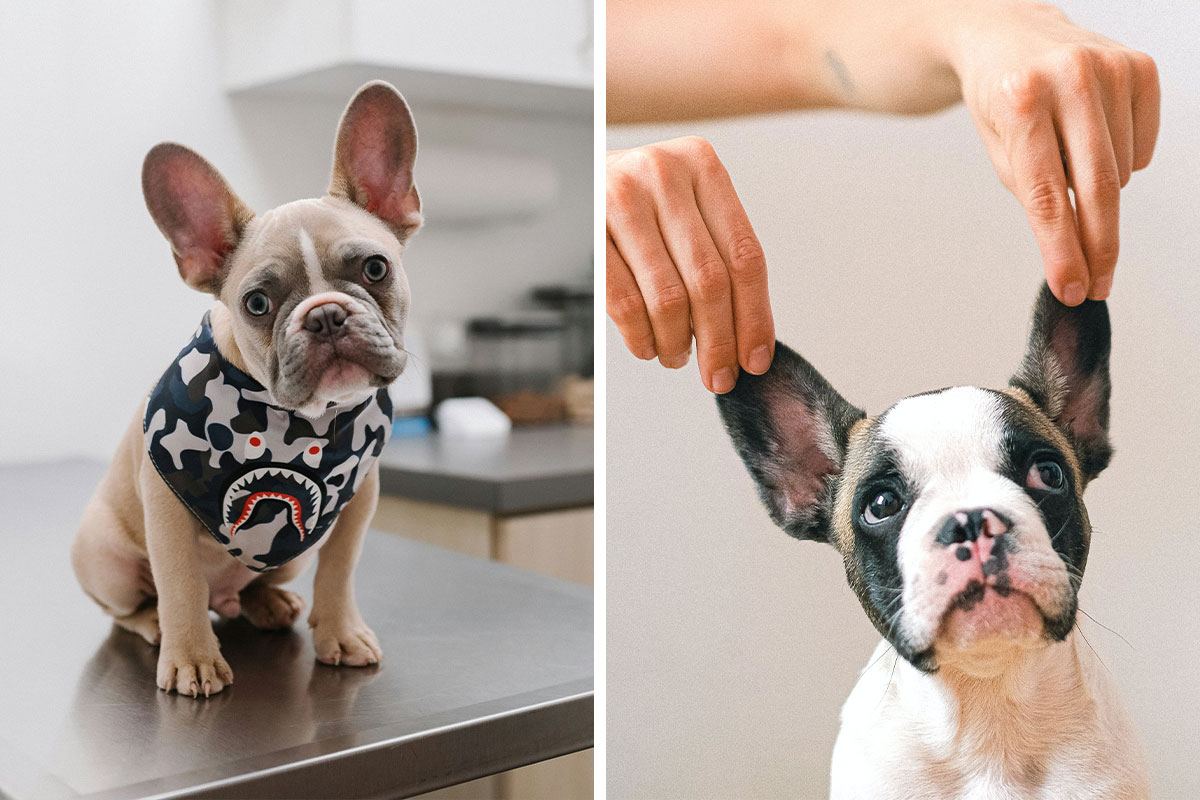
10 Common French Bulldog Health Issues You Should Know Know About
The French Bulldog, known for its unique bat-like ears, flat face & small size, has won the hearts of dog lovers everywhere. Recently, it became a more popular dog breed than the Labrador Retriever in America. The American Kennel Club announced in March 2023 that French Bulldogs are now the top purebred dog in the U.S. And this ends Labrador’s 31-year top spot. French Bulldogs are not just popular in homes, they’re also stars in dog shows. But behind their popularity & endearing appearance lies a susceptibility to several health issues. And, these issues, deeply rooted in genetics and the breed’s anatomy – range from respiratory challenges to joint problems.
- 72% of French Bulldogs have at least one health problem, showing the impact of breeding practices.
- Skin allergies in French Bulldogs can start at 1-3 years old, sometimes costing over $1,000 for owners.
- Brachycephalic Obstructive Airway Syndrome (BOAS) is prevalent due to French Bulldogs' flat faces.
- Intervertebral Disc Disease (IVDD) is significant in French Bulldogs, potentially causing paralysis.
A 2013 study by the Royal Veterinary College found that 72% of French Bulldogs have at least one health problem. So this shows the bad effects of breeding dogs without careful planning.
So if you own or want to own a French Bulldog, it’s important to know about these health issues. And, knowing helps you take better care of them. It’s not only about treating a sickness; it’s about making their life better. Luckily, many of these problems can be managed with the right care & attention.
This article delves into the top health issues your French Bulldog may encounter, offering insights and guidance to help you navigate these challenges effectively.
The information provided herein is for informational purposes only. Please refer to our disclaimer for more details..
Why French Bulldogs Susceptible to Health Problems?
French Bulldogs are loved for their unique looks. But, they are naturally predisposed to many health issues. Selective breeding practices aimed at achieving their distinctive appearance – having short noses, big ears, and small bodies – lead to health problems.
And, as most of these health issues are often congenital, meaning they need care from a vet for their whole life. This can affect the dog’s happiness and can be expensive for the owner. Regular vet visits are very important. Adult Frenchies should go once a year & older ones, over 11 years old, should go every six months. So with the right care, a healthy French Bulldog can live for 10 to 14 years.
10 Most Common Health Issues for French Bulldogs
If you’re thinking about getting a French Bulldog, it’s important to know about their common health problems. Many of these are because of their genes. And, knowing these challenges is vital as they often require ongoing treatment and significantly affect the dog’s life. People who want to get a French Bulldog should be ready to take care of these health problems.
1. Skin Problems
French Bulldogs, cherished for their distinctive skin and tail folds, unfortunately, face a higher risk of skin allergies. These allergies usually show up as skin issues, especially on their:
- Paws
- Bellies
- Folds
- And ears.
Common signs are a lot of itching, red skin, rashes, hot spots, hair loss, red bumps & acne. Often, these allergies start when Frenchies are 1-3 years old. But finding the exact cause, like food, things in the environment such as pollen and dust, or contact allergens from cleaning products, can be hard and expensive – sometimes costing more than $1,000.
Additionally, things like fleas and parasites from the environment also cause these allergies. And this shows why it’s important to treat them regularly for fleas and worms. There are treatments, but they might need them for life, which can add to the cost. So keeping their skin folds clean is key to preventing these problems. If you see these symptoms, get advice from a vet. They can properly diagnose and treat your Frenchie, helping them live a better life.
2. Brachycephalic Obstructive Airway Syndrome
Brachycephalic Obstructive Airway Syndrome (BOAS) is a prevalent health issue in French Bulldogs. It’s because of their flat faces and short noses – which come from how they were bred. And, this condition causes problems like small narrow nostrils, a long soft palate & a small windpipe, making it hard for these dogs to breathe.
Signs of BOAS include:
- Trouble with exercise and not handling heat well.
- Noisy, labored breathing, and snoring.
- Gastrointestinal disorders like vomiting.
- Risk of sleep apnea & collapsing episodes.
Most French Bulldogs have some level of BOAS. It’s usually found between 1 and 4 years old. The Humane Society Veterinary Medical Association says about half of them show serious signs of BOAS. And, their small nostrils are a big sign & can make them 20 times more likely to develop BOAS compared to other dog breeds
To manage BOAS, it’s important to limit exercise, keep the dog’s weight in check, and avoid stress and hot weather. In bad cases, treatments include oxygen therapy and NSAIDs for short-term help, and sometimes surgery to make breathing easier. Regular vet visits, ideally every year, are important. They help monitor and manage BOAS effectively, enhancing the dog’s overall quality of life.
3. Skin Fold Dermatitis
Skin Fold Dermatitis is often found in French Bulldogs. It comes from their cute wrinkles, mainly around their muzzle, nose, tail & vulva – for female dogs. These folds, while aesthetically pleasing, create a breeding ground for bacteria and yeast – leading to inflammation and infection.
Look out for signs like:
- Constant scratching, biting, and itching around the wrinkled areas.
- Red, sore skin and the appearance of sores.
- Bad-smelling skin, sometimes with yellow or white stuff coming out.
Infections usually begin with dermatitis because of moisture and stuff stuck in the skin folds. And if it gets worse, it can turn into a bacterial skin infection. Signs of this include hair loss around the folds, flaky skin, creamy discharge, and a strong yeasty smell.
To prevent this, clean the folds every day. You can use dog grooming wipes, a damp cloth, or unscented baby wipes. And make sure to dry the areas well after cleaning. Regular baths every one to three months are also good. If the symptoms don’t go away or your Frenchie seems upset when you clean them, get help from a vet. Treatment might include special shampoos, medicines for inflammation, antibiotics, antifungals & anti-yeast medications, depending on what your dog needs.
4. Heatstroke
Heatstroke is a big problem for French Bulldogs. Unlike humans, dogs regulate their body temperature primarily through panting. But French Bulldogs often have BOAS – which makes panting hard for them. This means they can overheat easily.
To stop heatstroke in French Bulldogs:
- Let them outside when it’s cooler, like in the morning or evening.
- Always have water & shade ready for them when they’re outside.
- Keep them in cool places, like air-conditioned rooms, when it’s hot.
Signs of heatstroke are too much panting, gums that are blue or really red & severe symptoms like vomiting, diarrhea, or convulsions. So if you see these signs, cool down your Frenchie right away. Put cool water on their head and neck and get help from a vet fast. And remember, it’s better to prevent heatstroke, so watch how hot it is for your French Bulldog.
5. Pyoderma
Pyoderma, a bacterial skin infection – is common in French Bulldogs. It usually happens when a cut or scratch in their skin folds gets infected. Signs to look for are:
- Itching
- Red skin
- Hair loss
- And crusty or pus-filled spots.
Prompt treatment with topical or oral antibiotics prescribed by a veterinarian is usually very effective. And to keep pyoderma away, clean & dry your Frenchie’s skin folds often. Use safe products for pets. Being proactive in skincare routines can significantly reduce the risk of pyoderma in French Bulldogs.
6. Eye Problems
French Bulldogs, due to their flat faces, sadly have a lot of eye problems. Their eyes stick out more – which can lead to issues like corneal ulcers, dry eye, cherry eye, conjunctivitis & cataracts.
- Corneal Ulcers: Their bulging eyes make Frenchies likely to get corneal ulcers. And these painful sores can happen from:
- Injury
- Dryness
- Or irritation from chemicals.
Signs include rubbing their eyes and redness. It’s important to get vet care quickly.
- Dry Eye (Keratoconjunctivitis Sicca): Known medically as Keratoconjunctivitis sicca (KCS), dry eye occurs when tear production is insufficient, often an inherited condition in Frenchies. Signs are:
- Squinting
- Redness
- And yellow or green stuff coming from the eye.
If not treated, it can lead to ulcers and scars on the eye. Treatment includes tear-stimulating drops, replacing the tear film & sometimes topical antibiotics or anti-inflammatory medications. And in bad cases, they might need surgery called parotid duct transposition.
- Cherry Eye: Most Frenchies are genetically susceptible to this disease. This happens when a gland in the third eyelid pops out, looking like a red lump. Though cherry eye isn’t usually painful but can cause chronic dry eye if left untreated. Surgery can put the gland back in place. And after surgery, they might need antibiotics and medicine to reduce swelling. This surgery often works well.
- Conjunctivitis (Pinkeye): Frenchies are also prone to get pink eye from bacterial infections, viruses, or allergies. Look for pink or red swollen eyes and weird discharge.
- Cataracts: Cataracts make the eye lens hard and cloudy, which can lead to vision impairment or even blindness. This condition is genetic in French Bulldogs and requires surgical intervention.
- Distichiasis: This condition involves abnormal eyelash growth – causing irritation and damage to the eye. It’s fixed with surgery to stop discomfort and stop problems like ulcers.
Regular eye care, including keeping their eyes clean and avoiding irritants, is essential. Watch for signs like discharge, redness, or if they keep touching their eyes. Finding and treating eye problems early can really help French Bulldogs.
7. Ear Infections and Deafness
Ear infections are common in French Bulldogs. Their big ears and flat faces mean they have narrow ear canals. This makes it easy for dirt and moisture to get trapped and hard to get out. And it’s a perfect place for yeast and bacteria to grow – causing ear infections known as otitis externa.
Signs of ear infections include:
- Scratching their head a lot and shaking it.
- Redness or sores inside the ears.
- Bad smell and yellow or black stuff coming out of the ears.
- Ear canals that look crusty or thick.
If you don’t take care of ear infections, they can get really bad. They can cause pain, balance issues, paralysis of the face, hearing problems, or even total deafness. French Bulldogs can also be born deaf. Signs of deafness are not reacting to loud noises & sleeping more than usual. A test called BAER can check for deafness. While you can’t cure deafness, but it can be managed with adapted training methods like hand signals.
To treat ear infections, vets usually give medicines like antibiotics and antifungals. Chronic infections can alter the skin lining the ear canals, further narrowing them and exacerbating the issue.
Remember: Preventative care is key. Clean your Frenchie’s ears every two weeks with a special ear rinse or what the vet suggests. Make sure their ears are dry after cleaning. This cleaning not only stops infections but also helps you spot problems early. If you see signs of an infection, get help from a vet right away.
8. Hip Dysplasia
Hip dysplasia is a genetic problem often seen in French Bulldogs. It happens when the hip joint doesn’t form right. This means the ball and socket of the hip don’t fit well together, causing the joint to wear down, rub & grind. It usually leads to arthritis and joint disease – which can cause a lot of pain.
Look out for signs like:
- Trouble walking or a wobbly way of walking.
- Pain or discomfort around the hips.
- Problems going up stairs or jumping.
- “Bunny hopping” movement or reluctance in activity.
Finding this problem early is important. Mild cases can be helped with medicines that reduce swelling (NSAIDs), joint supplements like glucosamine, and omega-3 fatty acids. Sometimes, physical therapy is also a good idea. And in worse cases, surgery might be needed. To prevent hip dysplasia, keep your Frenchie at a healthy weight, and don’t let them exercise too much when they’re puppies. Reputable breeders often do X-rays to check for hip dysplasia. So, always ask about the health condition of your Frenchie puppy and their parents when buying one.
9. Patella Luxation
Patella luxation happens when the kneecap moves out of its normal place in the knee joint of French Bulldogs. And this is a genetic issue that causes the kneecap to slip – leading to signs like:
- Sometimes skipping a step
- Weird hindlimb movements
- Or sudden weakness.
There are different levels of this problem, from 1, which isn’t too bad, to 4, which is very serious. While mild cases might only cause discomfort, more severe cases can lead to osteoarthritis due to ongoing joint damage. For serious cases, surgery aimed at deepening the groove of the patella can really help. So watching for this problem early & keeping an eye on it is important for your Frenchie’s health.
10. Intervertebral Disc Disease
Intervertebral Disc Disease (IVDD) is a big health problem for French Bulldogs. It’s because of their genes and short, stout legs. IVDD happens when the discs in their spine push out or break – hurting the spinal cord. This can cause pain, nerve damage & sometimes paralysis. Signs in Frenchies include:
- Dragging of paws
- An arched or hunched back
- Vocalizations of pain when touched
- And sometimes sudden paralysis, which might come with losing control of going to the bathroom.
If you see these signs, especially paralysis, get vet help right away. Treatment depends on how bad it is and might include medicine or surgery. To prevent IVDD, keep your Frenchie at a healthy weight & don’t let them jump on and off things a lot. Finding and treating this early is key to handling this tough condition.
Conclusion
So if you have a French Bulldog or are thinking of getting one knowing about the health problems is very important to take care of your dog’s health. These issues, ranging from respiratory problems to joint disorders – are not just medical conditions but also factors that deeply impact your dog’s quality of life. Although these conditions can be treated, they still need constant care. And making sure your Frenchie gets regular vet check-ups and taking care of their special needs can make a big difference. Being a responsible and informed dog owner means helping your Frenchie have a happy & healthy life. Caring for them is not just a duty; it’s a journey filled with love and friendship.
129views
Share on Facebook Image credits:
Image credits: 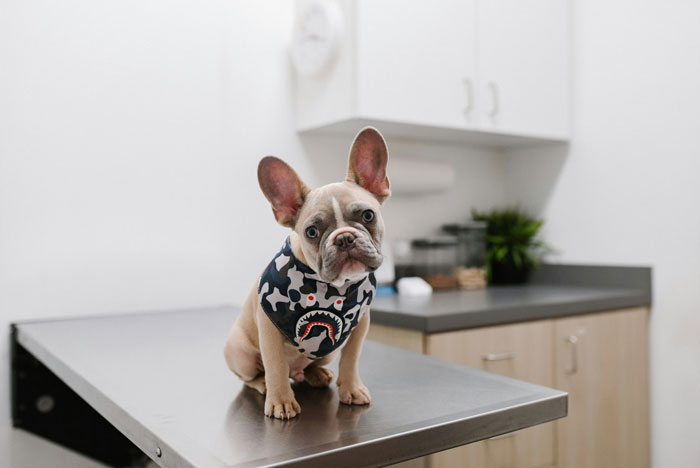 Image credits:
Image credits: 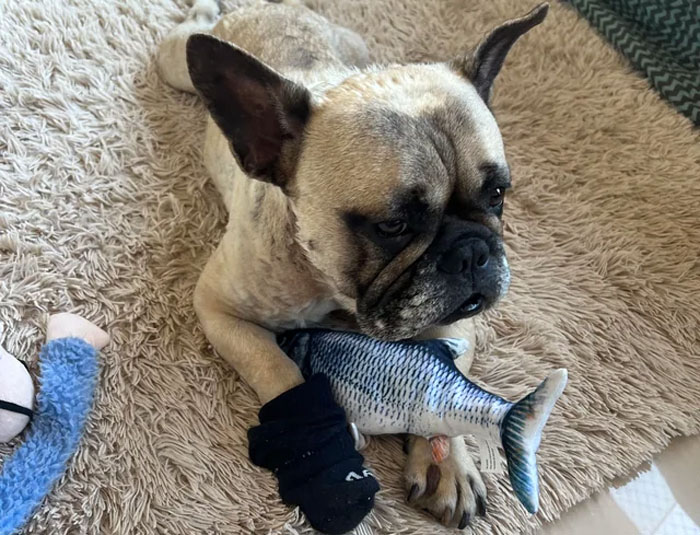 Image credits:
Image credits: 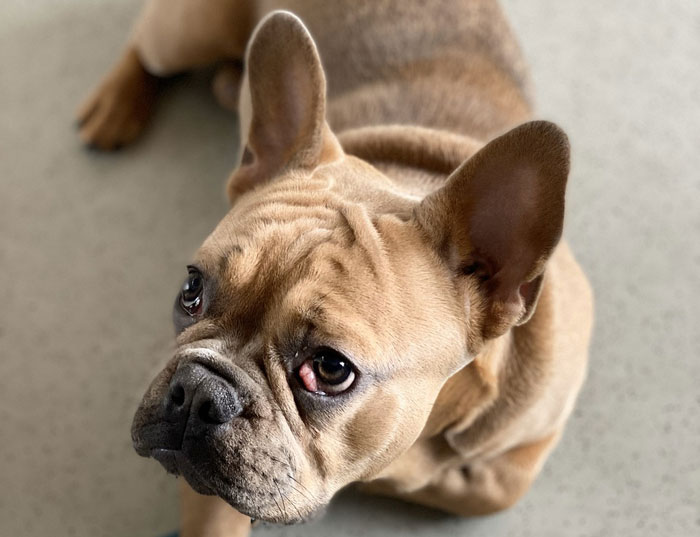 Image credits:
Image credits: 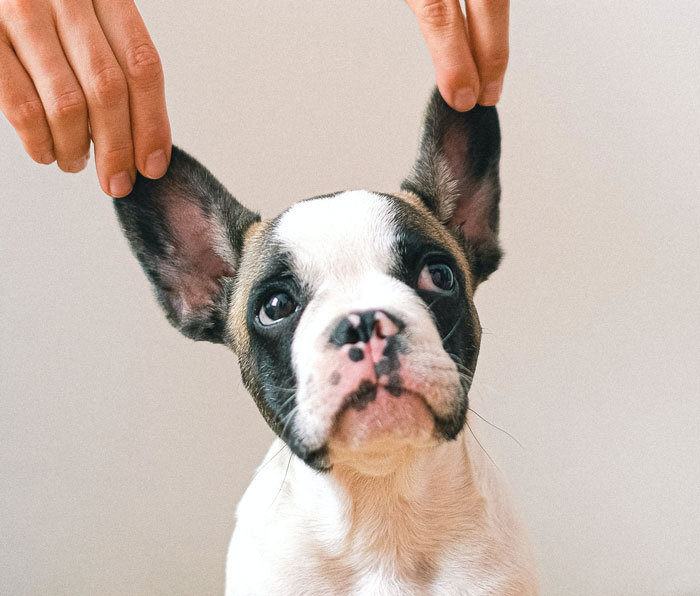 Image credits:
Image credits: 


-5
0